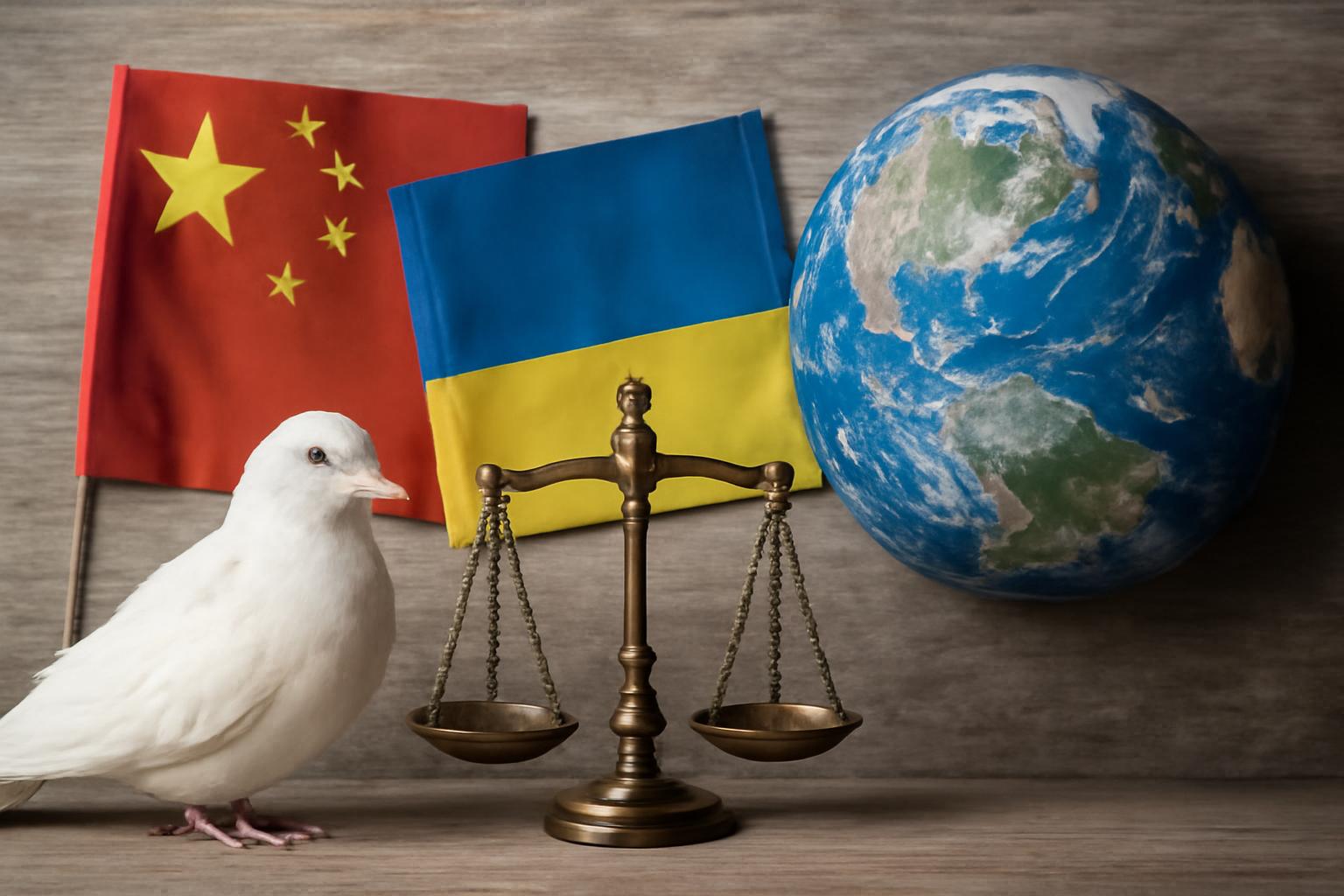China’s possible role in Ukraine’s future peace is being debated as a test of how far great powers will go to shape not just a ceasefire but the terms of reconstruction and influence. Reports describe Beijing’s denial of any readiness to send peacekeepers, even as observers frame a longer-term aim: to raise China’s standing in UN missions, to present itself as a responsible global actor, and to gain leverage in post-conflict rebuilding. The conversation has moved beyond a simple question of troop deployment to questions of legitimacy, invitation, and the conditions under which any such presence would operate. In Munich and other capitals, scholars have floated the idea that, should Kyiv and Moscow reach a settlement, China—or even India—could participate, provided there is a negotiated ceasefire, security guarantees for Ukraine, and a UN mandate. Yet there is a strong caveat: Beijing would likely act only if invited and supported by the parties and the international community; without a framework, it would not entrench itself in a peace operation. Europe, wary of shifting influence near its borders, contends with the prospect that Chinese peacekeeping could open doors to economic engagement in Ukraine’s reconstruction, offering a pathway to assess needs and secure future contracts. The context of China’s growing military capabilities, its regular UN involvement, and a tightening but fragile partnership with Russia adds to the tension, especially as Putin’s visit to China and the wartime memory recast Beijing’s posture. The idea remains live and contested, not yet underway, but analysts suggest it could become a strategic option if conditions align.
What a thought, if the world’s order were to be steadied by the hand of a single power stepping in to manage harmony among the warring parties and the commerce that follows. Yet this is precisely the line that leads from inquiry into illusion. The temptation to reframe peace as a project of top-down design—an orderly procession by those who presume to know enough to govern the fates of nations—ignites a familiar danger. In a world whose knowledge is dispersed among millions of minds, the attempt to orchestrate peace by fiat risks replacing adaptation with doctrine. Peacekeeping in such a crucible is not a neutral act of keeping the lid on a pot; it is an intervention that redefines incentives, reallocates opportunity, and embeds power in the hands of those who claim the mandate. The moment one accepts that a distant authority can guide reconstruction, one invites the creeping creep of central planning by another name.
Reconstruction is not a canvas for mandarins to paint with geographic maps and grand contracts. It is a process rooted in local knowledge—the lifeworlds of farmers, small businesses, lawyers, property owners, and tenants who must re-create trust and enforceability in a legal order. Market processes, not bureaucratic edicts, tend to align incentives toward durable stability: secure property rights, transparent rules, predictable enforcement, and the freedom for voluntary exchange to allocate resources efficiently. When a great power enters as a “peacekeeper” with a built-in capacity to shape contracts, to select winners and losers in reconstruction, it risks doing more than preventing fighting; it risks displacing the very mechanisms that enable sustainable recovery. The egalitarian rhetoric of “responsible global actor” can cloak a strategic leverage—an opportunity to access vast markets, secure concessions, and cement influence—under the banner of humanitarian duty.
The European unease is not merely about sovereignty; it is a sober defense of a principle Hayek valued: that peace and prosperity emerge from institutions resilient to the arrogance of power and capable of channeling dispersed knowledge into stable rules. A peace kept by force from above may silence gunfire for a time, but it often leaves the deeper incentives intact: the command over scarce resources, the prerogative to write the rules of engagement, the ability to reward friends and sanction rivals. The right answer, if there is one, is not to exclude competition among great powers but to ensure that any commitment to peacekeeping is narrowly circumscribed, democratically legitimate, and subordinate to an overarching framework that respects national sovereignty, universal rights, and the rule of law. That means invitations, consent, clear sunset clauses, rigorous oversight, and a commitment to empower local institutions rather than supplant them.
In the end, peace is not the fruit of a single plan drafted by the most capable state, but the outcome of countless acts of restraint and mutual adjustment governed by norms that diffuse through markets, courts, and civil society. If a China-led or China-participated peacekeeping arrangement ever takes shape, it must be judged not by the magnitude of its ambitions but by the limits it places on power, the humility with which it accepts local knowledge, and the fidelity with which it upholds the conditions that make peaceful order durable. Otherwise, what is sold as peacekeeping may become, in truth, a new kind of governance—the redistribution of influence under the guise of reconstruction—and the very remedy that weakens the price signals and autonomy that history has shown to be essential for lasting peace.
